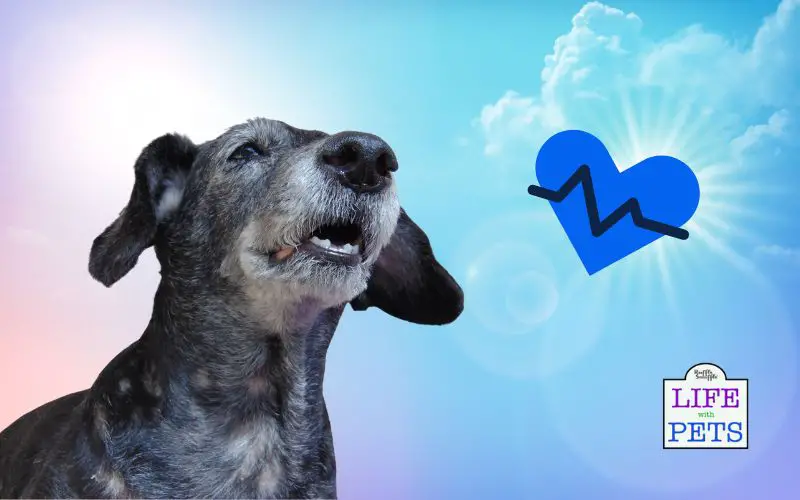Dogs age differently than humans, so their health changes at different rates, too. While most adult dogs are able to lead happy, healthy lives, common health problems start to develop once they get older. Senior dogs are susceptible to many different diseases and conditions as they age. These factors can make it difficult for your senior dog to stay active and happy. In this blog post, we’ll list six of the most common health problems associated with older dogs:
Hearing loss
Hearing loss is one of the most common conditions that can be seen in older dogs. It happens when a dog’s hearing isn’t as sensitive as it once was, which impairs the dog’s ability to understand sounds. The cause of hearing loss is usually related to ageing, though it may also be due to an injury.
Dogs who have hearing loss are usually aware of their surroundings. However, your dog may have hearing loss if he appears confused or does not respond to familiar sounds and noises. You can also speak to your vet during routine check-ups to confirm hearing loss and discuss ways to cope with it.
Vision loss
Many dogs experience vision loss as they get older. This can make it harder for your dog to navigate around the house and yard without running into things or getting lost. Senior dogs are prone to developing cataracts – a cloudy layer that forms over the lens of the eye, resulting in a partial or total loss of vision. Most vision-related problems can be spotted early during routine examinations.
Joint problems
Most senior dogs will have joint problems as they get older. This can be due to a number of different factors, including genetics, a lack of a balanced diet, or even a lack of exercise. Joint pain can make it difficult for your dog to get around the house, especially if he has trouble standing and walking. It can also increase your dog’s risk of developing bone diseases like arthritis and hip dysplasia.
Most joint-related problems can be avoided by keeping your dog active and healthy. This includes maintaining a healthy diet with plenty of protein and minerals and playing with him every day to keep him fit. However, if your older dog’s joint problems seem to be getting worse, you may want to take him or her to the vet right away.
Obesity
Obesity is common in dogs of all ages, and it is something you can change. Dogs who are overweight are more likely to experience a number of health issues, including joint problems and diabetes, as well as an increased risk of certain cancers and cardiac diseases. Additionally, being overweight can make it difficult for your dog to move around the house.
Obesity can be prevented by feeding your dog treats occasionally and making sure he gets plenty of exercise every day. You can also start him or her on a weight-loss programme. This can help you achieve your goal of getting your dog in shape.
Heart diseases
Heart-related diseases are common in older dogs, but they can happen to any dog, regardless of age. The good news is that most heart problems can be prevented by feeding your senior dog a high-quality diet, providing him with plenty of exercise and having regular checkups.
Heart diseases are usually caused by a combination of different factors, including genetics, diet, age and overall health condition. You should see your veterinarian as soon as your dog shows symptoms of possible heart disease, such as trouble breathing, vomiting, coughing, or losing consciousness.
Skin conditions
Older dogs often experience various skin conditions, such as pruritus, which causes them to scratch more frequently than usual. This could be caused by dry skin, but it could also indicate other serious conditions, such as mite infestation or hypothyroidism. Some of the other common skin conditions in older dogs include skin dryness, allergies and infections.
Most skin conditions, such as dry skin and sunburns, are influenced by environmental factors such as diet, lifestyle, etc. As a result, they can be prevented through regular grooming and care and a proper diet. This includes brushing your dog’s coat regularly and providing him or her with a high-quality diet, as well as plenty of exercise. You can also use topical treatments to help treat specific skin conditions in older dogs, such as dryness, skin infections and sunburn. Also, be sure to bring your older pet to the vet for a checkup if you notice any changes in your dog’s skin.
To sum it up
Growing older brings its own sets of challenges as well as the development of age-related conditions. You can help your older dog age well and lead a good life in his or her senior years through regular exercise and a high-quality diet. Also, be sure to get a suitable pet cover that not only covers for routine veterinary checkup, but also for pre-existing conditions. You can visit Petgivity, which provides comprehensive pet insurance regardless of age. This way, your dog will gracefully age along with you and be able to live comfortably even in his golden years.
Get the latest dog articles straight to your inbox
This is a guest post.

